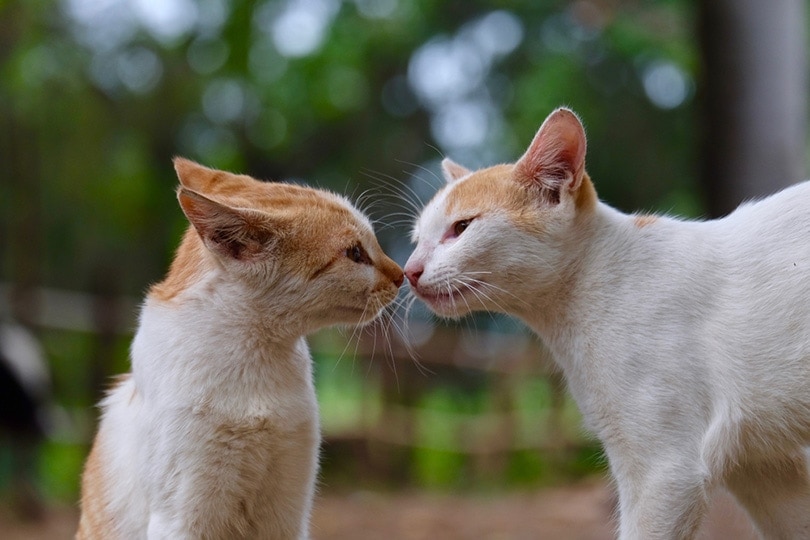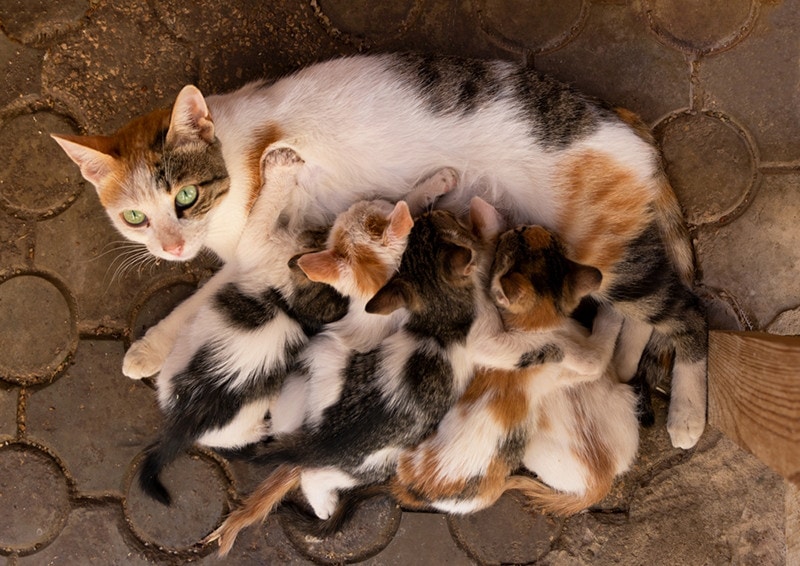Can Cats Eat Moths? Vet-Reviewed Facts & FAQ

Updated on
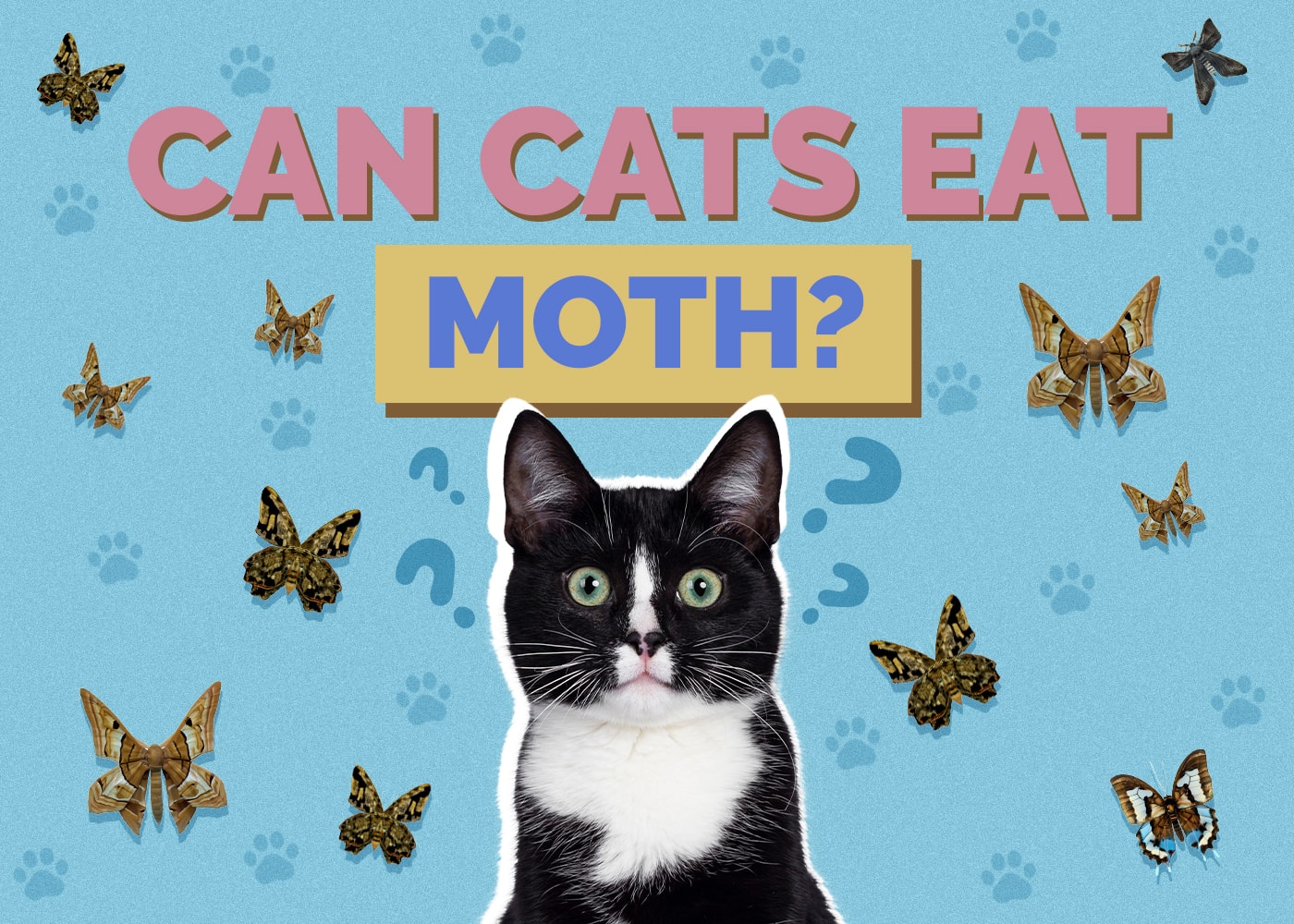
Just like their wild counterparts, domestic cats are natural-born hunters and killers. The desire to stalk, chase, and pounce is innate, and that can mean chasing anything from a squirrel to a fluttering moth.
But can cats eat moths? Yes, cats can eat moths without any adverse effects in most cases. Learn more about cats eating moths and other insects.
Is It Safe for Cats to Eat Moths?
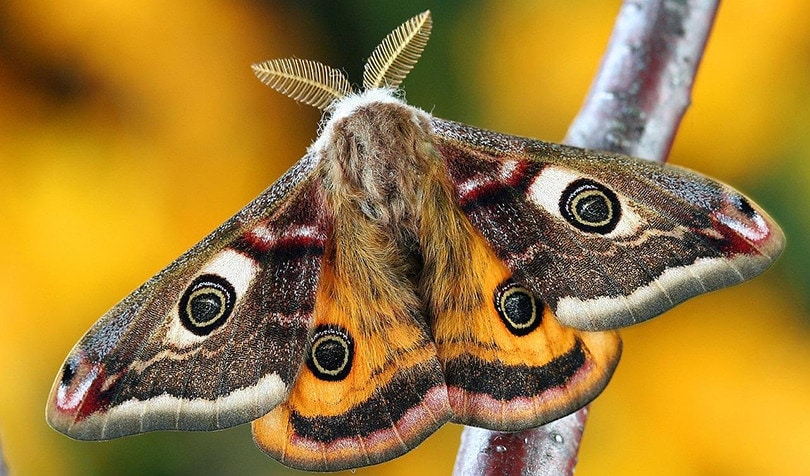
Moths, like other common insects, are safe for cats to eat in small amounts. These insects are not likely to pose a serious health risk to your cat. However, if they’re eaten in large amounts, the cat may experience clinical signs like vomiting and diarrhea.
Most moths and butterflies are safe for your cat and entice them to hunt with their fluttering wings and erratic flight patterns. There is one exception, though. The Garden Tiger Moth and its caterpillar form may be poisonous if ingested. The bright colors on the moth serve as a warning to others that they are unpalatable. Also, the hairs on the caterpillar can be quite irritating. We’re not entirely sure of the toxic effects that it has on cats, but if you suspect that your feline friend has gotten a hold of one of these moths, please reach out to your veterinarian for assistance.
What Insects Are Hazardous to Cats?
Moths may be safe, but plenty of other insects and arachnids can pose a threat to cats.
Spiders
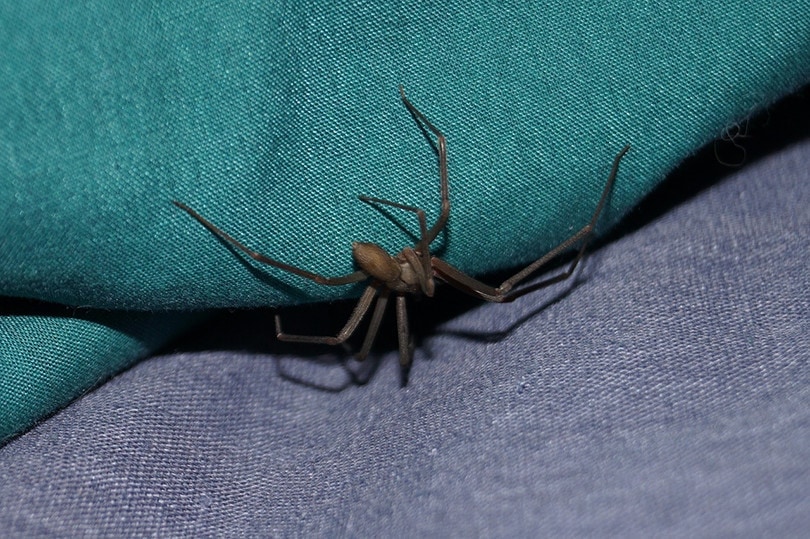
Most spiders are harmless to cats, but venomous spiders may be dangerous. Generally, if the spider is harmful to humans, it may be harmful to cats. Fortunately, the number of venomous spiders that can harm humans is fairly small.
Common venomous spiders include the hobo spider, the black widow, and the brown recluse. The venom from these spiders can cause symptoms ranging from vomiting and diarrhea to paralysis and muscle tremors. One bite from the black widow spider can be potentially lethal for cats. If you live in an area with these spiders, it’s best to discourage your cat from chasing them. If you think they are in your home, contact a pet-friendly exterminator to help remove them. Spiders pose a problem when they bite, so keep an eye out for bites and accompanying signs.
Bees and Wasps
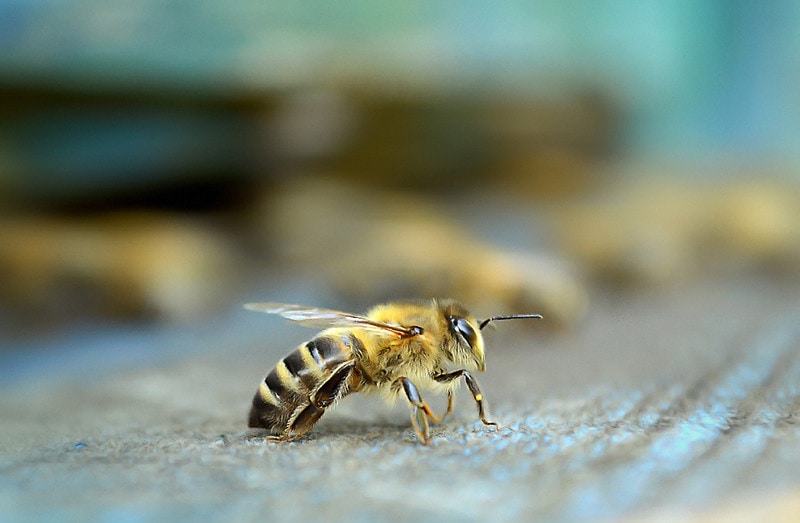
Like moths, buzzing bees and swarming wasps can look like exciting prey items to a cat. Their stings can be painful, however, and felines may have an allergic reaction. If your cat is stung by a bee or wasp, consult with your veterinarian. You may be advised to give your pet Benadryl or a similar antihistamine, but don’t take it upon yourself—always contact your vet first. If your cat is showing signs of a serious allergic reaction, such as hives or difficulty breathing, take them to the nearest emergency hospital for treatment.
Scorpions
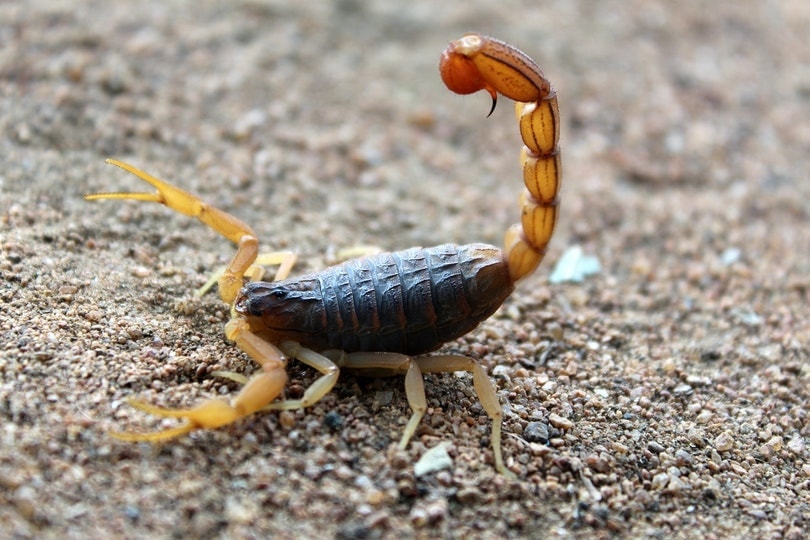
Cats like to play with scorpions, but they can inflict a painful sting or pinch. More serious effects can cause signs like vomiting, difficulty breathing, and other adverse reactions.
Fortunately, most scorpions don’t possess strong enough venom to create serious concerns in cats. The exception is the Arizona Bark Scorpion, which is a highly venomous scorpion found in the southwestern desert. If you live in this area or are concerned about a scorpion sting on your cat, it’s best to visit your veterinarian and get a full checkup.
Other Insects
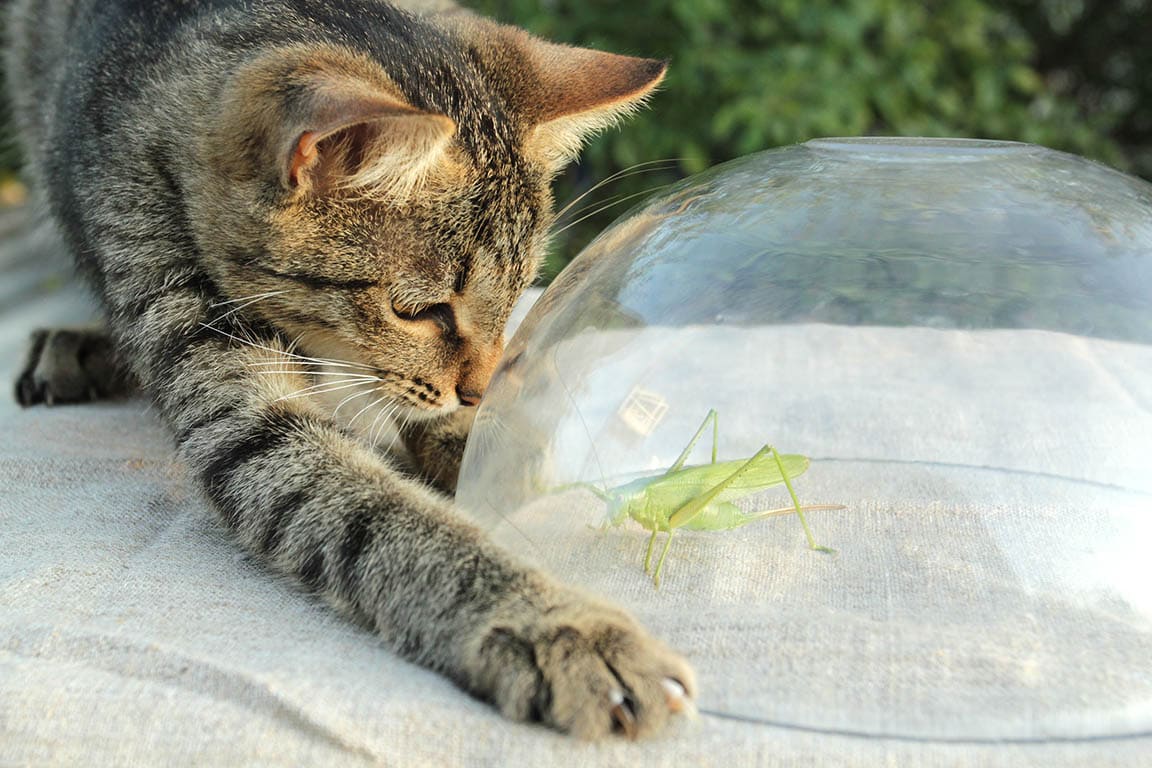
Any insect can look appealing to a cat, including flies, grasshoppers, roaches, beetles, and crickets. Most of these insects are harmless and won’t pose major problems for your cat. But their exoskeletons can cause some digestive upset. In addition, some pests carry parasites or pesticides that can impact them, so it’s important to consult with your veterinarian if you are concerned about exposure. This may also be a good time to speak with them about effective dewormers and flea and tick preventives for your cat.
A Note About Pesticides
With most insects and arachnids, the pesticide treatment poses more of a risk to your cat than the creature itself. Mothballs, for example, are highly poisonous to cats and may cause vomiting, lethargy, and difficulty breathing.
If you treat your home or yard for pesticides, be sure to use pet-safe products. If you bring in an exterminator, look for companies with pet-safe treatment methods that ensure that your cat will be okay if they ingest an insect with pesticides or come in contact with the substance.
Final Thoughts
Cats have an irresistible urge to hunt and kill, which includes common insects you’ll find around your home. Moths may be appealing to your cat because of their fluttering, and fortunately, your cat is likely safe chasing, hunting, and ingesting moths. If they’re eaten in small amounts, it should not pose a major problem. Keep an eye out for dangerous pests, such as stinging insects, scorpions, and venomous spiders, and be mindful of any pesticides or pest-control methods you use in and around your home.
- See also: Can Cats Eat Birds?
Featured Image Credit: vfchen, Shutterstock


